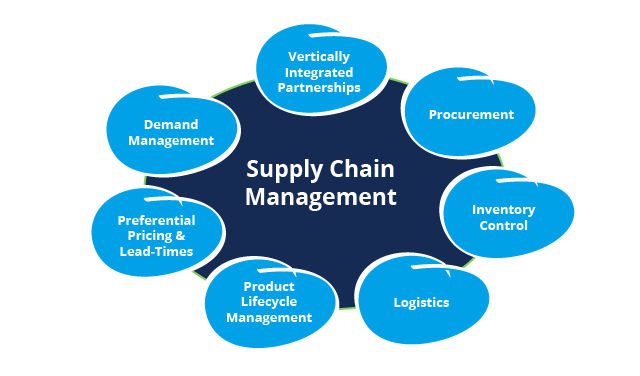Understanding the Essential Steps of the Purchasing Process in Supply Chain Management
In the intricate web of supply chain management, the purchasing process plays a pivotal role in ensuring the smooth flow of goods and services from suppliers to end consumers. It serves as a critical link between the procurement of essential resources and the delivery of finished products, encompassing a series of essential steps that contribute to the efficiency and effectiveness of the overall supply chain. In this blog, we will delve into the key stages of the procurement process in supply chain management, highlighting its significance and impact on the seamless operation of supply chains worldwide.
Requirement Identification and Planning
The purchasing process begins with the identification of specific requirements within the supply chain. The procurement process in supply chain management involves understanding the organization's needs, forecasting demand, and determining the necessary quantity and quality of goods or services required. Thorough planning is essential at this stage to ensure that the procurement process aligns with the overall strategic goals and objectives of the organization, optimizing inventory levels, and minimizing potential disruptions or delays in the supply chain.

Supplier Evaluation and Selection
Selecting the right suppliers is a critical aspect of the purchasing process in supply chain management. It involves evaluating potential suppliers based on various factors, including their reliability, reputation, product quality, pricing, and delivery capabilities. Through a comprehensive supplier evaluation process, supply chain managers can identify trusted partners who can meet the organization's requirements consistently and contribute to the seamless operation of the supply chain. Establishing strong and reliable relationships with suppliers is crucial for fostering collaboration, transparency, and mutual growth within the supply chain network.
Negotiation and Contracting
Once suitable suppliers have been identified, the negotiation and contracting phase comes into play. This purchasing process in supply chain management involves negotiating terms, pricing, delivery schedules, and contractual agreements with the selected suppliers. Effective negotiation skills, coupled with a deep understanding of market dynamics, enable supply chain managers to secure favorable terms that align with the organization's budgetary constraints and quality expectations. Clear and well-defined contracts are essential to establish mutual accountability and ensure that both parties adhere to the agreed-upon terms throughout the procurement process.
Purchase Order Processing
The purchase order processing stage involves the formal documentation and initiation of the procurement transaction. This includes the creation and issuance of purchase orders that outline the specific details of the procurement, such as the type and quantity of goods or services, pricing, delivery timelines, and any additional terms or conditions. Accurate and timely processing of purchase orders is crucial for streamlining communication between the organization and its suppliers, facilitating the efficient flow of goods or services, and maintaining transparency and accountability throughout the purchasing process.
Receipt and Inspection of Goods
Upon the delivery of goods or services, the receipt and inspection phase ensures that the received products meet the specified quality standards and comply with the agreed-upon terms outlined in the purchase orders. Thorough e procurement in supply chain management help identify any discrepancies, damages, or defects in the received goods, enabling supply chain managers to address any issues promptly and work with suppliers to resolve potential concerns. Effective communication and collaboration with suppliers during this stage are essential to ensure that any issues are resolved in a timely and mutually satisfactory manner.
Conclusion
The e procurement in supply chain management serves as a fundamental pillar of supply chain management, contributing to the efficient flow of goods and services from suppliers to end consumers. By understanding the essential steps of the purchasing process, Procqur can streamline procurement operations, foster strong supplier relationships, and ensure the timely delivery of high-quality products and services that meet the organization's strategic goals and customer expectations. With effective planning, supplier selection, negotiation, purchase order processing, receipt and inspection of goods, as well as accurate invoicing and payment processing, organizations can optimize their supply chain operations, minimize potential risks, and achieve sustainable growth and success in today's competitive business landscape.
PROCQUR
Office No:26, 18th Floor, One By Omniyat, Business Bay, Dubai, UAE
971 42432543
Comments
Post a Comment